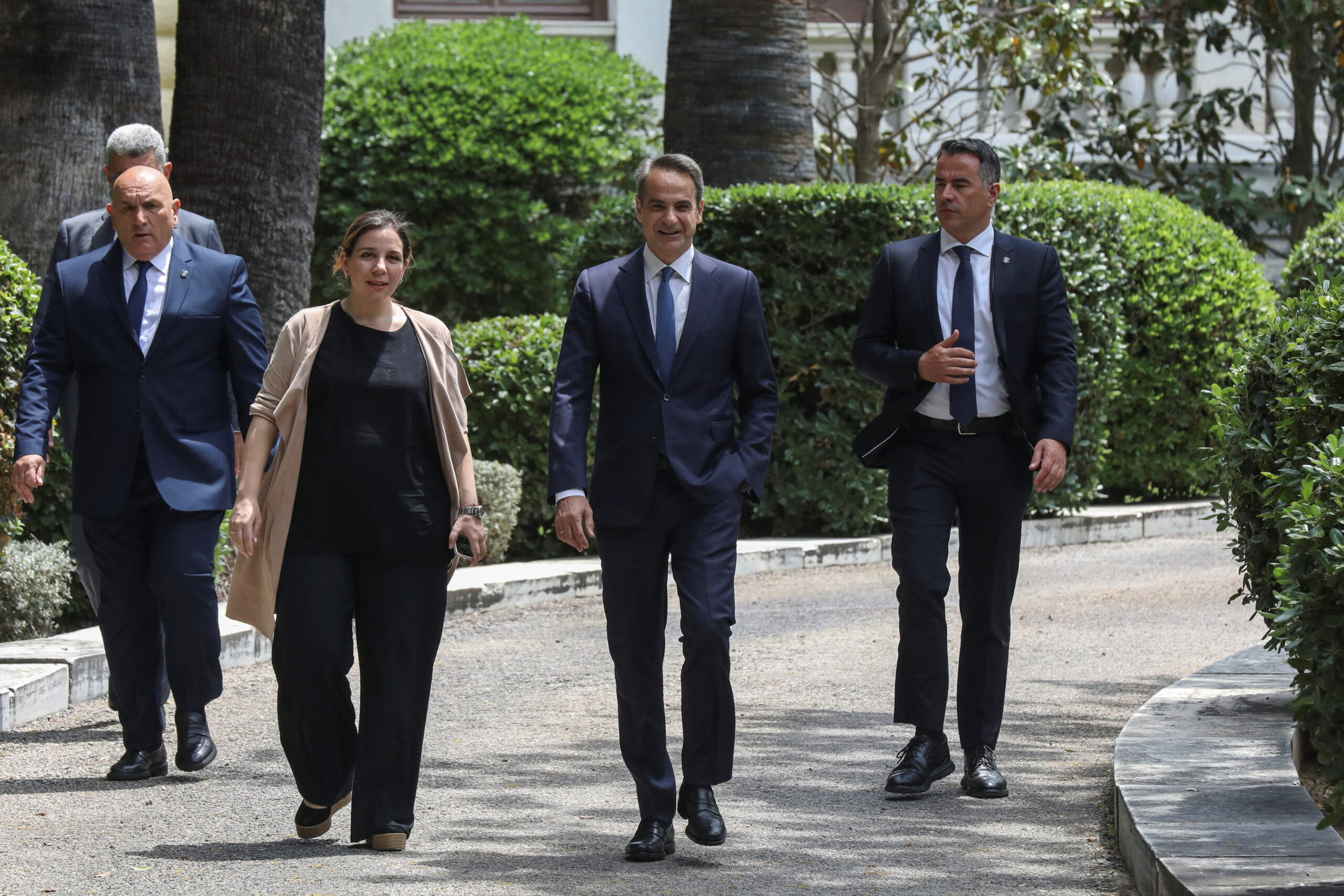
Greece is heading for another general elections next month, possibly on June 25 as the ruling National Democracy Party refused to form a government with the other contending parties and pitched for holding another general election to allow the party with the largest seats to get majority and run the new administration smoothly. The other parties with smaller seats also declined to make any attempt to form the government. The general election to the 300 member Parliament was held on May 21 which did not give majority to the ruling NDP. The party was short of five seats from majority mark.NDP got 146 seats as against 71 by leftwing Syriza, 41 by socialist PASHOK and 26 by the communist KKE.
Greek President Katerina Sakellaropoulou appointed Sarmas, president of Greece’s supreme financial court, as head of a caretaker government that will lead the country to the elections. The move follows a meeting with leaders of all parties represented in the 300-member strong new parliament. The new caretaker government is expected to be sworn in by Sunday and the date of elections will be announced on Monday.
A revised electoral system will be used at the next election, which provides a bonus of up to 50 extra seats for the winning party, facilitating the formation of a single-party government. Under this system, the frontrunner will gain an absolute majority in the new Parliament with even 38 per cent of the votes. This new electoral system will help the leading rightwing party NDP which got 40. Per cent votes in the May21 elections followed by the Left Syriza with 20 per cent., PASHOK with11per cent and KKE with 7.2percent.
The 55-year-oldconservative Prime Minister Kiriakos Misotakis was expecting a majority in the May 21 elections for his party NDP but once his party was short of majority by five seats, he took the decision to opt for the second elections so that he could run the government freely without depending on any other party. The change in the electoral law gave some incentives to the front ranking party in the next elections and that will help the NDP to cross the majority mark.
Prime Minister Misotakis made clear his preference. “The citizens want a strong government with a four-year horizon,” he said. “Today’s political earthquake calls on all of us to speed up the process for a definitive government solution,” he added. Syriza head and former Prime Minister Tsipras also indicated a new vote was likely, saying “the electoral cycle is not over yet”. The next battle, he said, will be “critical and final”. Syriza was the second largest party with71 seats and 20.07 votes and Communist KKE, fourth with 7.2 per cent votes and 26 seats.
Mitsotakis, a 55-year-old Harvard-educated former banking executive and global management firm consultant, won the election in 2019 on a promise of business-oriented reforms and has promised to continue tax cuts, boost investments and bolster middle-class employment. His popularity took a hit following a February 28 rail disaster that killed 57 people after an intercity passenger train was accidentally put on the same rail line as an oncoming freight train. It was later revealed that train stations were poorly staffed and safety infrastructure broken and outdated. But in the course of the campaign , he was able to meet the opposition challenge by mentioning of the economic growth of Greece despite covid impact.
Tsipras was prime minister during some of the most tumultuous years of Greece’s economic crisis, but the 48-year-old struggled to regain the wide support he enjoyed when he swept to power in 2015 on a promise of reversing bailout-imposed austerity measures. Tsipras as the Prime Minister during that period as also later as the opposition leader had to face severe criticism from the trade unions for failing to fight the austerity measures which had hit the workers badly.
Greece’s once-dominant Pasok party, overtaken by Syriza during Greece’s 2009-2018 financial crisis, also fared poor in Sunday’s vote, garnering just over 11 percent. Its leader, Nikos Androulakis, 44, was at the centre of the wiretapping scandal in which his phone was targeted for surveillance. Androulakis’ poor relationship with Mitsotakis, whom he accuses of covering up the wiretapping scandal made any coalition difficult. Similarly, there was no possibility of any understanding between NDP and Syriza after the May 21 elections.
Since coming to power in 2019, Mitsotakis has delivered unexpectedly high growth, a steep drop in unemployment and a country on the brink of returning to investment grade on the global bond market for the first time since it lost market access in 2010 at the outset of the financial crisis. Mitsotakis got the full support of the Greek businessmen and he was liked by the international financial institutions which had problems with the Syriza during its tenure in the government.
As of now, projections for the next month general elections look favourable for NDP to get a majority on its own. The electoral law is now advantageous to the right wing party. But Syriza still has chances to improve its position further by leading the disgruntled population of Greece who are fighting for better living conditions. Syriza and KKE have to be participant of the broad struggle against the NDP in the coming elections. Greek Left has a long tradition of struggle. Only a united action of the Syriza and KKE will help both in faring better in the June elections. (IPA Service)
The post Greece Heads For Second National Elections As Coalition Talks Fail first appeared on IPA Newspack.


